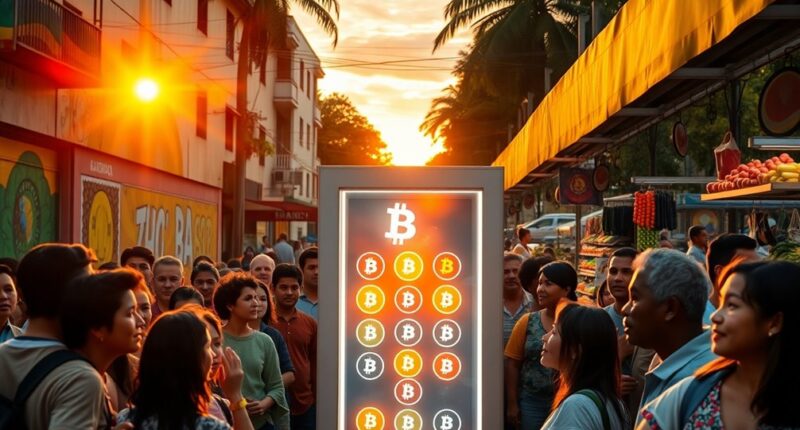You've likely noticed the growing interest in cryptocurrency, especially in Brazil. A recent YouGov survey reveals that nearly 15% of Brazilians are considering swapping traditional bank accounts for crypto services. This shift reflects broader economic concerns and a quest for financial independence. But what does this mean for the future of banking in Brazil? The implications could be significant, and the discussion is just beginning.

As Brazil grapples with economic instability and currency devaluation, many people are turning to cryptocurrency as a viable alternative to traditional banking. A recent survey by YouGov reveals that close to 15% of Brazilians are considering replacing their bank accounts with crypto services. This shift highlights a growing trend among the population, driven by the desire for financial inclusion and better investment opportunities.
You might be among the 12% of Brazilians who already own cryptocurrency, placing the country among the top nations for crypto adoption. With 41% of the population either owning or having owned digital assets, it's clear that interest in cryptocurrency is on the rise. As the Brazilian currency continues to lose value, many are seeking stable alternatives. Cryptocurrency serves as an alternative to traditional banking, particularly for those who struggle to access traditional banking services. Investing in precious metals through a Gold IRA can also provide a hedge against inflation, similar to cryptocurrencies.
Brazil is witnessing a surge in crypto adoption, with 12% already owning digital assets amid currency devaluation.
Crypto provides an appealing option, particularly for those who struggle to access traditional banking services. By leveraging digital assets, you can enhance your financial independence and explore new avenues for wealth generation.
The economic landscape has shifted dramatically. Limited access to banking services means that many Brazilians are looking for alternatives, and cryptocurrency fits the bill. It's not just a speculative investment; it's a hedge against inflation and economic uncertainty.
With advancements in blockchain technology and a supportive regulatory framework from the Brazilian government, the crypto market is poised for growth. The central bank's oversight helps foster a responsible environment, making crypto increasingly attractive.
However, you shouldn't overlook the challenges that come with this shift. A lack of education around cryptocurrency can hinder its widespread adoption. Many people may feel daunted by the complexities of digital currencies, and volatility remains a concern.
High price fluctuations make cryptocurrencies risky for long-term savings or daily transactions. Moreover, security risks, such as hacks and scams, can deter those who are hesitant to trust this new financial landscape.
Despite these challenges, the idea of transitioning to crypto services is compelling. With tax compliance measures in place, such as capital gains tax on profits exceeding R$35,000, the government acknowledges the growing market.
Popular exchanges like Foxbit and Mercado Bitcoin facilitate this shift by providing user-friendly platforms for trading and investing in cryptocurrencies.









